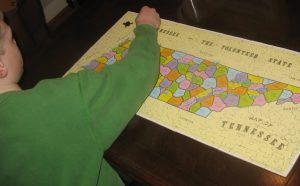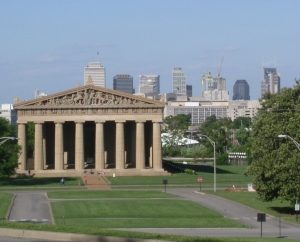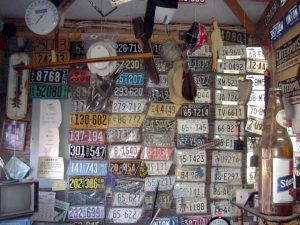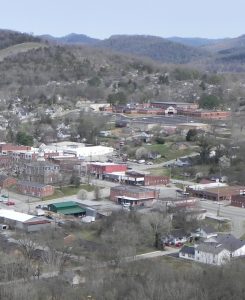You’re close to being a Tennessee civics genius. You’ve learned about the constitution, the governor, the legislature, the courts, the supreme court, the Constitutional officers… the list goes on. But what about the government of your hometown, and home county?
 COUNTY GOVERNMENTS
COUNTY GOVERNMENTS
There are 95 counties in Tennessee, ranging from Shelby County (with 900,000 people) to Pickett County (with 4,800 people). And although they are different in many ways, they have certain things in common. If you look in the Tennessee Constitution, Article VII and Section 1, you will see that every single county in Tennessee (no matter how small) is required to elect:
* A legislative body of some kind (known as the county commission)
* A county executive
* A sheriff
* A trustee
* A register
* A county clerk
* A property assessor
Now for an interesting point:
The Constitution requires that each county elect these officials. But it doesn’t spell out what these officials actually do, leaving that up to the legislature. When state representatives wrote the Constitution in 1870, no one could foresee that there would ever even be such a thing as a “license plate.” Today there is. Somewhere along the way the job of issuing license plates became the job of the county clerk.
A couple of other things about county officials:
* The “trustee” is the county tax collector. The “assessor” determines the value of land for tax purposes. And the “register” runs the office where property deeds are recorded.
* State law, as written by the state legislature, determines how much county officials get paid. The salary is based on a county’s population.
* Even though the Constitution requires each county to have an executive, it doesn’t require that that person be referred to as the “executive.” Today almost all counties refer to their county executive as the county mayor.
* Tennessee law (but not the Constitution) requires that each county have a county highway department and a person in charge of that department, known in most parts of the state as the highway supervisor or superintendent. But in large urban areas the person in charge of road construction is an appointed head of a department of public works.
* Tennessee law (but not the Constitution) also requires that each county elect a circuit court clerk and what is known as a “clerk and master.” These two officials work with the circuit and chancery court judges who have jurisdictions over their county.
* Some Tennessee counties have what is known as a constable — an elected official with law enforcement responsibilities. The office of constable is in state law, but not in the Constitution. Some counties have in recent years done away with the office of constable because of confusion about the role of that office.
CITY GOVERNMENTS
The first thing to know about city governments is many of you don’t have one. If you live in a rural area you may not have a city government. Also, you may live in an area that goes by a name but doesn’t actually have a city government of any kind (these are known as unincorporated areas).
Fosterville, Tennessee, for instance, is a spot on the map that contains a post office (in fact, it may be the smallest post office in America). But it doesn’t have a government, so officially it isn’t really a city or town.
Most people in Tennessee do, however, live in some kind of city or town that collects taxes from them and provides services to them.
We’re not going to explain to you all the specific ways in which cities and towns can be organized. But here are a few high points:
* Every town, no matter how small, must have an elected legislative body, usually called the city council. Some cities have as few as three councilmembers, but most have more.

There are actually two Bristols — one in Virginia and one in Tennessee — and they are right next to each other!
* Every town, no matter how small, has to have someone known as the mayor. In some towns the mayor is elected by the people. In some towns the mayor is simply a councilman voted by the other councilmen to be mayor.
* In most cities and towns the mayor isn’t a full-time position; the owner of the town drug store might also be the mayor. But in the big cities the position is a full-time job that pays like a full-time job.
* Many towns have what is known as a city manager, a person who actually runs local government on a day-to-day basis and (theoretically) stays above the fray of day-to-day politics. The city manager is appointed by the council. Among the larger Tennessee cities with city managers are Brentwood, Oak Ridge, Johnson City and Franklin. Some towns are set up to have a very powerful city manager and a weak mayor. Others have a powerful mayor and a weak city manager.

Nashville has a metro form of government, which means that the city and county have the same government
There is one other form of local government in Tennessee that needs to be explained, and that is the metropolitan form of government.
Under a “metro” system, the county and city governments combine and there is only one government that runs everything from the schools to the police force to the library. Nashville/Davidson County is a metro form of government, run by a full-time mayor and a 40-member council.
Davidson County has one legislative body (known as the Metro Council). (That’s why, on maps, the city of Nashville is shown to cover all of Davidson County.) In contrast, Memphis and Shelby County have separate legislative bodies, as do Knoxville and Knox County.


